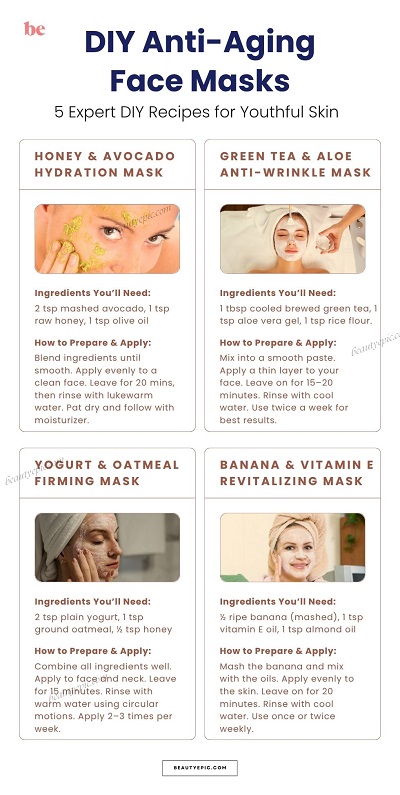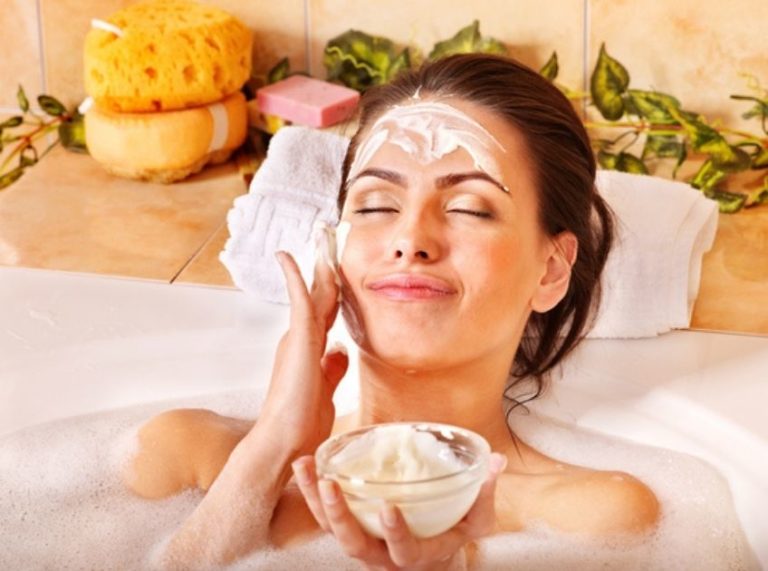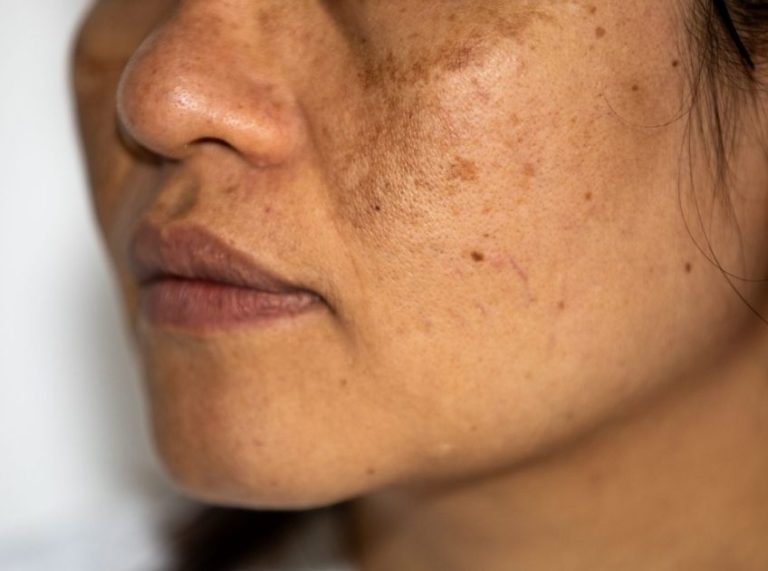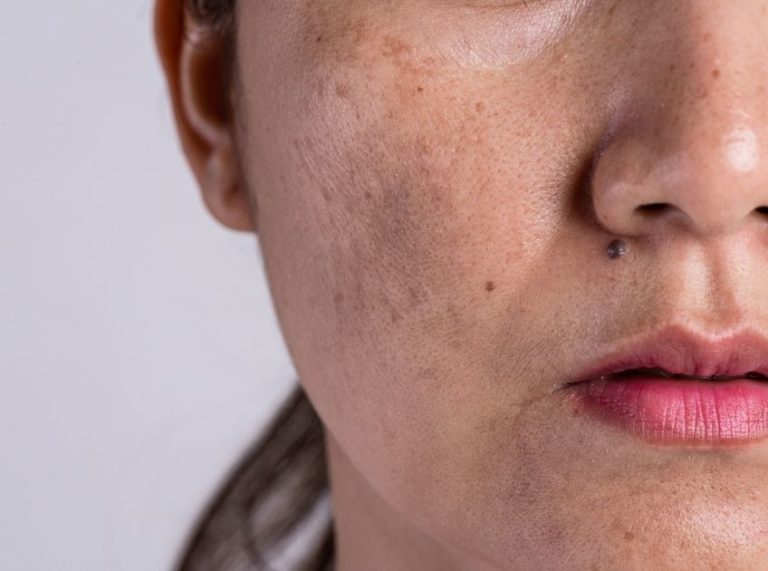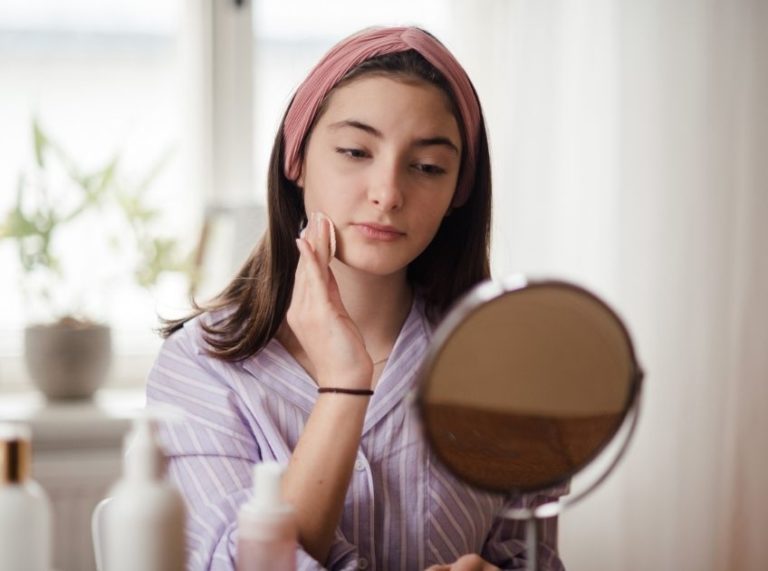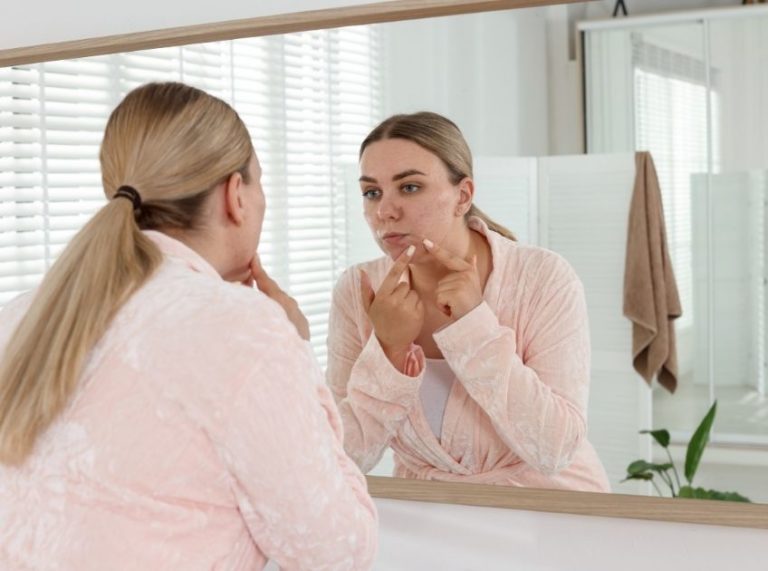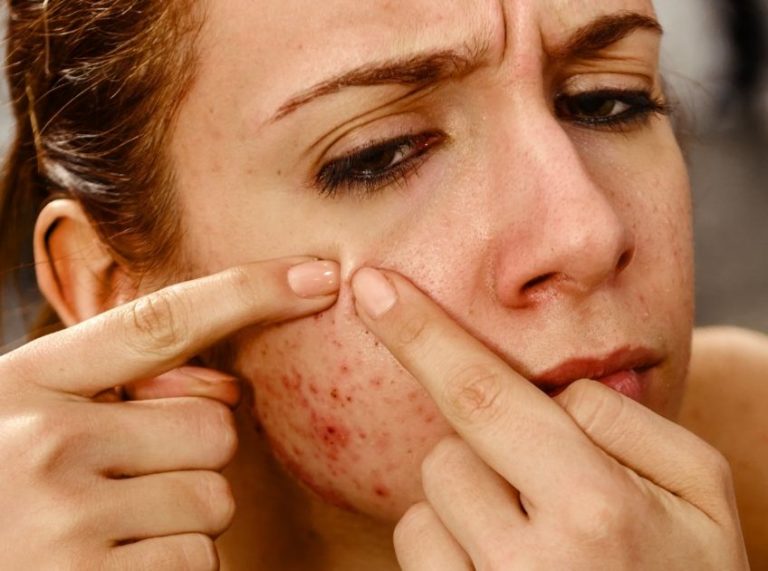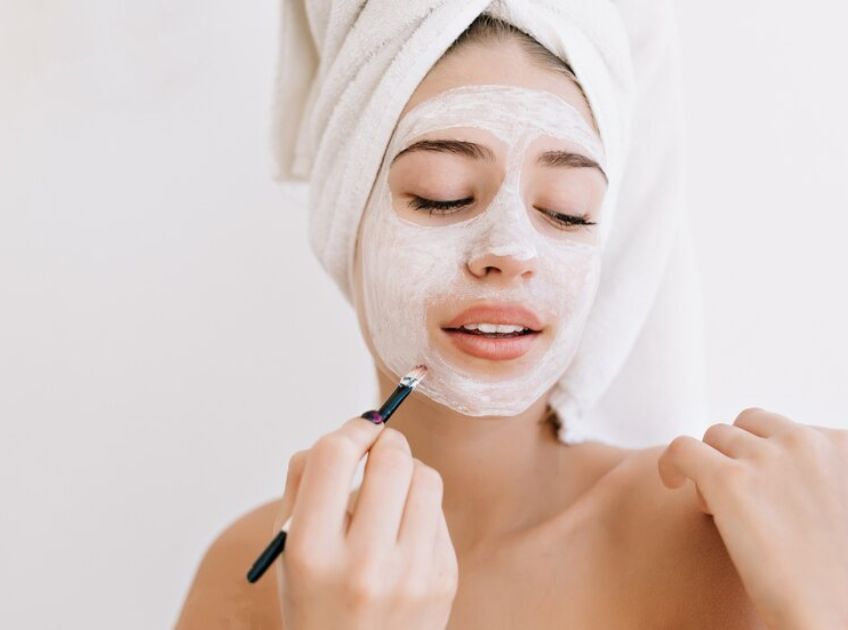
Important: This article is for informational purposes only. Please read our full disclaimer for more details.
Aging is a natural process, but with the right skincare, you can maintain a youthful appearance. DIY anti-aging face masks are a safe and effective way to fight fine lines and restore elasticity without harsh chemicals. These natural recipes target wrinkles, dullness, and dryness for radiant, firm skin.
Why Use DIY Anti-Aging Face Masks?
- Nourish skin with natural antioxidants and vitamins.
- Boost collagen production to reduce wrinkles.
- Lock in moisture for plumper, youthful skin.
- Cost-effective alternative to expensive treatments.
The Science Behind These Masks
Natural ingredients like honey, aloe vera, and green tea are packed with antioxidants that protect skin from free radical damage (1)(2). Yogurt and oatmeal provide gentle exfoliation and lactic acid to stimulate cell turnover. Oils like argan and avocado supply essential fatty acids to restore the skin barrier.
Key Components That Contribute to Anti-Aging
- Antioxidants: Neutralize free radicals and slow down aging.
- Collagen Boosters: Vitamin C and amino acids enhance skin firmness.
- Moisture Retainers: Natural oils prevent dehydration and dryness.
- Mild Exfoliants: Lactic acid gently removes dead cells for fresh skin.
What Science Says
A study in Dermatologic Therapy highlights the effectiveness of natural antioxidants like green tea and vitamin C in reducing oxidative stress and wrinkles (3)(4).
Research from PubMed confirms that topical application of plant-based oils improves skin elasticity and barrier function over time (5)(6).
When to Stop Using These Masks
- If you notice persistent redness or irritation.
- When breakouts increase after multiple uses.
- If you develop allergic reactions like swelling or itching.
Adjusting Quantities for Personalization
- Add more yogurt or aloe for sensitive skin.
- Increase honey or oil content for dry skin.
- Reduce citrus-based ingredients for delicate or reactive skin.
Best Skin Types for These Masks
- Dry Skin: Benefit from avocado, honey, and oils.
- Oily/Combination Skin: Prefer clay and yogurt-based masks.
- Sensitive Skin: Use soothing aloe vera and oatmeal blends.
Are DIY Anti-Aging Masks Safe?
Yes, when made with fresh, natural ingredients and used moderately. Always patch test before applying to your face to avoid potential reactions.
5 DIY Anti-Aging Face Masks You Must Try
1. Honey & Avocado Hydration Mask
A deeply moisturizing mask to combat dryness and fine lines.
Ingredients
- 2 tsp mashed avocado
- 1 tsp raw honey
- 1 tsp olive oil
Directions
- Blend ingredients until smooth.
- Apply evenly to a clean face.
- Leave on for 20 minutes.
How to Apply
- Use a brush or clean fingers.
- Rinse with lukewarm water.
- Pat dry and follow with moisturizer.
2. Green Tea & Aloe Anti-Wrinkle Mask
Rich in antioxidants to fight free radicals and soothe skin.
Ingredients
- 1 tbsp brewed green tea (cooled)
- 1 tsp aloe vera gel
- 1 tsp rice flour
Directions
- Mix into a smooth paste.
- Apply a thin layer to your face.
- Leave on for 15–20 minutes.
How to Apply
- Rinse with cool water.
- Use twice a week for best results.
3. Yogurt & Oatmeal Firming Mask
Lactic acid and gentle exfoliation improve texture and tone.
Ingredients
- 2 tsp plain yogurt
- 1 tsp ground oatmeal
- ½ tsp honey
Directions
- Combine all ingredients well.
- Apply to face and neck.
- Leave for 15 minutes.
How to Apply
- Rinse with warm water using circular motions.
- Apply 2–3 times per week.
4. Banana & Vitamin E Revitalizing Mask
Softens skin and smooths out fine lines naturally.
Ingredients
- ½ ripe banana (mashed)
- 1 tsp vitamin E oil
- 1 tsp almond oil
Directions
- Mash the banana and mix with the oils.
- Apply evenly to the skin.
- Leave on for 20 minutes.
How to Apply
- Rinse with cool water.
- Use once or twice weekly.
5. Clay & Rosewater Detox Mask
Tightens pores and refreshes aging skin.
Ingredients
- 1 tbsp bentonite clay
- 1 tbsp rosewater
- 2 drops of argan oil
Directions
- Mix clay with rosewater to form a paste.
- Add argan oil and stir.
- Apply to a clean face.
How to Apply
- Let it dry for 10–12 minutes.
- Rinse thoroughly with lukewarm water.
- Use once a week.
Frequently Asked Questions (FAQ’S)
1. How often should I use anti-aging DIY masks?
A. 2–3 times a week is ideal, depending on your skin type and the mask ingredients.
2. Can I store these masks for later use?
A. Fresh masks are best. Store for 24–48 hours in the refrigerator if needed.
3. Do these masks replace anti-aging creams?
A. They complement your skincare routine but don’t replace daily moisturizers or sunscreen.
DIY anti-aging face masks offer a natural, affordable way to rejuvenate skin. With the right ingredients, you can boost collagen, fight wrinkles, and keep your skin glowing. Incorporate these masks into your routine for visible, lasting results without harsh chemicals.
